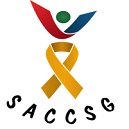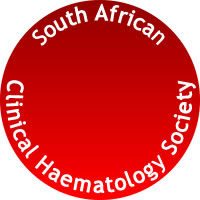Original Research
Dysphagia progression-free survival in oesophageal cancer patients treated with palliative radiation therapy
Submitted: 21 February 2021 | Published: 30 June 2021
About the author(s)
Nazreen Bhim, Department of Radiation Oncology, Groote Schuur Hospital, Cape Town, South Africa; and, Faculty of Health Sciences, University of Cape Town, Cape Town, South AfricaVisham Bhagaloo, Department of Radiation Oncology, Groote Schuur Hospital, Cape Town, South Africa; and, Faculty of Health Sciences, University of Cape Town, Cape Town, South Africa
Alistair Hunter, Department of Radiation Oncology, Groote Schuur Hospital, Cape Town, South Africa; and, Faculty of Health Sciences, University of Cape Town, Cape Town, South Africa
Galya Chinnery, Faculty of Health Sciences, University of Cape Town, Cape Town, South Africa; and, Department of Surgery, Groote Schuur Hospital, Cape Town, South Africa
Barbara Robertson, Department of Radiation Oncology, Groote Schuur Hospital, Cape Town, South Africa; and, Faculty of Health Sciences, University of Cape Town, Cape Town, South Africa
Abstract
Background: In patients with advanced oesophageal carcinoma, palliation of dysphagia is important to maintain a reasonable quality of life.
Aim: To determine the dysphagia progression-free survival (DPFS) in patients with advanced oesophageal carcinoma treated with palliative radiotherapy (RT).
Setting: Groote Schuur Hospital, Cape Town, between January 2015 and December 2016.
Methods: The medical records of all patients with oesophageal carcinoma were reviewed, and patients who were not candidates for curative treatment and received palliative RT were selected. For these patients, the dysphagia score (DS) was recorded prior to RT, six weeks after RT and at each follow-up visit. The DPFS was calculated as the time from completion of RT to worsening of DS by ≥ 1 point or until death. Other outcomes measured were objective change in DS and survival post RT.
Results: The study population comprised 84 patients. Squamous cell cancer was the primary histological subtype (93%). The median duration of DPFS after RT was 73 days, with approximately two-thirds of remaining patients able to swallow at least liquids and soft diet until death. The difference in median duration of DPFS was not statistically significant in stented versus non-stented patients (54 days vs 83 days, p = 0.224). The mean change in DS was 0.45 ± 0.89 points following RT and the post-RT survival was significantly shorter in patients with stent insertion (81 days vs 123 days, p = 0.042).
Conclusion: Palliative RT can successfully be used to prolong DPFS in patients with locally advanced and metastatic squamous cell cancer of the oesophagus.
Keywords
Metrics
Total abstract views: 2735Total article views: 3060



